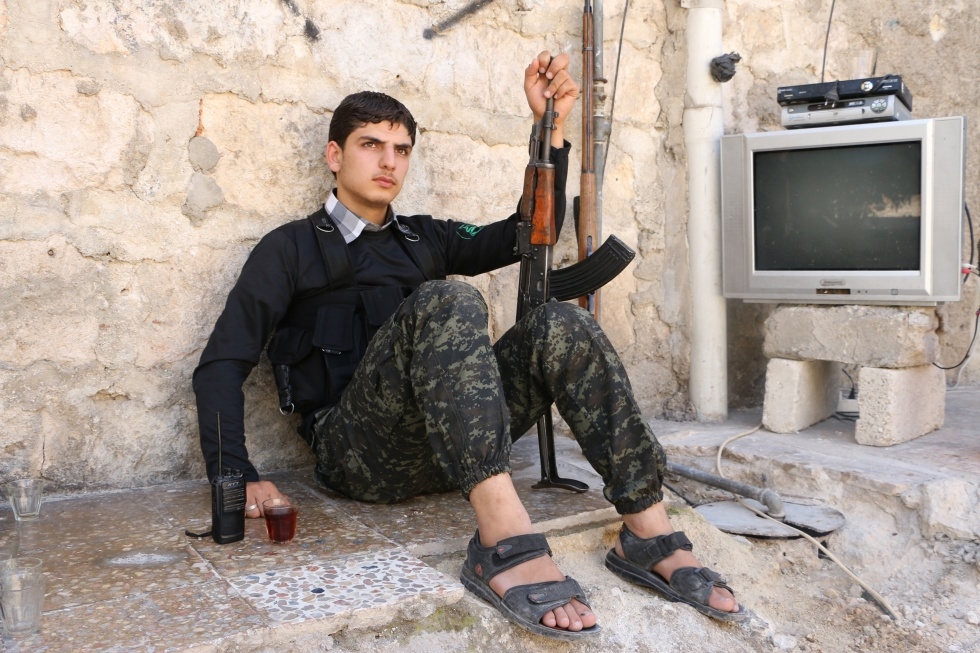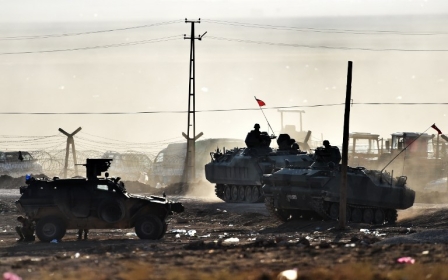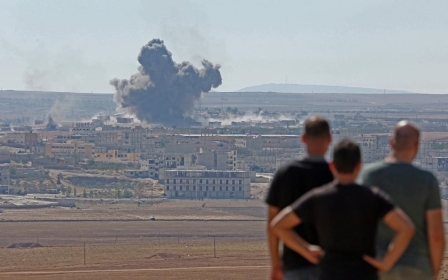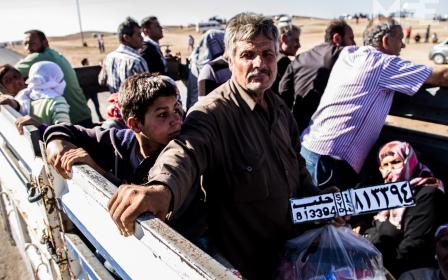US: Viable Syrian opposition only way to combat Islamic State

Defeating the Islamic State cannot be done with air strikes alone and requires building a strong and viable opposition in Syria, the White House has admitted.
The ongoing US-led air strikes on IS positions in Iraq and Syria have not managed to fully “roll back” the militants, showing the limits of the current anti-IS strategy President Barack Obama’s spokesman, Josh Earnest, told reporters on Wednesday.
“There are limitations associated with the exclusive use of air power,” Earnest said. “Our strategy [in Syria] is reliant on something that is not yet in place … a Syrian opposition that can take the fight to [Islamic State.]”
Despite pounding IS positions near the northern Syrian town of Kobane heavily in recent days, the US-led coalition has only had marginal success and the predominantly Kurdish town, has been teetering on the edge for days.
According to the Syrian Observatory for Human Rights, 20 US-led coalition strikes overnight on Tuesday managed to kill just 45 Islamic State fighters and destroy five of their vehicles.
While the aerial campaign at last seemed to have temporarily stalled the Islamic State advance on Wednesday afternoon, hundreds of Kurdish fighters have been killed defending the town and there are still fears that it could yet fall to IS if international support is not stepped up.
IS sources told Al Jazeera Arabic on Thursday that its fighters were still in control of many neighbourhoods and were currently working to seal all entry and exit points to the town before launching further attacks.
The West now seems to be hoping that fellow NATO member Turkey, which voted to expand its anti-IS mandate last Thursday will move in to help Kobane.
“The Kurdish elements within Syria are an important part of the equation in holding the line against [Islamic State] and clearly the Turks, because they are physically contiguous, can assist with the supply of equipment and support to them,” UK foreign secretary Philip Hammond told reporters in Washington.
Turkey, however, has thus far failed to commit to ground troops, seemingly making its involvement conditional on the coalition promising to guarantee Turkish borders, set up safe zones and no-fly areas in Syria, and also pledging to oust Syrian President Bashar al-Assad – something that the White House has long shied away from.
Foreign Minister Mevlut Cavusoglu said on Thursday at a news conference with visiting NATO Secretary General Jens Stoltenberg that "It's not realistic to expect that Turkey will lead a ground operation on its own."
The US envoy to the anti-IS coalition General John Allen is expected to arrive in Ankara today to hold talks with the Turkish authorities, although the extent of his remit seems to be in doubt.
While US Secretary of State John Kerry on Wednesday said that the prospect of no-fly zones and buffers in Syria was “worth examining” and should be looked at “very, very closely,” Obama’s spokesperson said that this option was “not something under consideration right now”.
Assad making gains?
As the political wrangling continues, criticism is start mount that the US-led strikes are allowing Assad’s forces to surge ahead.
A United States official told the New York Times that there have been indications that Syrian fighter jets and helicopters have stepped up attacks on key battle grounds like Aleppo since coalition strikes began in late September.
“It would be silly for them not to take advantage of the US doing airstrikes,” said the official, who spoke on condition of anonymity to discuss confidential intelligence reports. “They’ve focused in the west and left off the east, where we are operating.
“Essentially, we’ve allowed them to perform an economy of force. They don’t have to be focused all over the country, just on those who threaten their population centres.”
The US-led strikes in their current form therefore risk further polarising the opposition and fuelling suspicion of US intentions, the source explained.
The US is now trying to build up internal and international support for the so-called "moderate" Syrian opposition and is looking into the best ways to train and empower groups on the ground, but the process is fraught with difficulty and expected to take months, if not years.
“It remains a difficult mission. As I’ve indicated from the start, this is not something that is going to be solved overnight," Obama said on Wednesday.
Hammound, who was in Washington to discuss the prospect of UK forces training the Syrian opposition and joining the US-led coalition in Syria, also expressed hesitation.
“We would need to see a military need, something we could do that is not already being done, and we would need to be persuaded that in the grand scheme of things it is better for the UK to dilute its effort between Syria and Iraq rather than concentrating on Iraq as we are at the moment,” said Hammond when asked about UK support. “We would also frankly need to be in a position where public and parliamentary opinion in the UK was supportive … we would want to have a sense that public opinion has moved to a point where it would be supportive of such action.”
Middle East Eye propose une couverture et une analyse indépendantes et incomparables du Moyen-Orient, de l’Afrique du Nord et d’autres régions du monde. Pour en savoir plus sur la reprise de ce contenu et les frais qui s’appliquent, veuillez remplir ce formulaire [en anglais]. Pour en savoir plus sur MEE, cliquez ici [en anglais].




